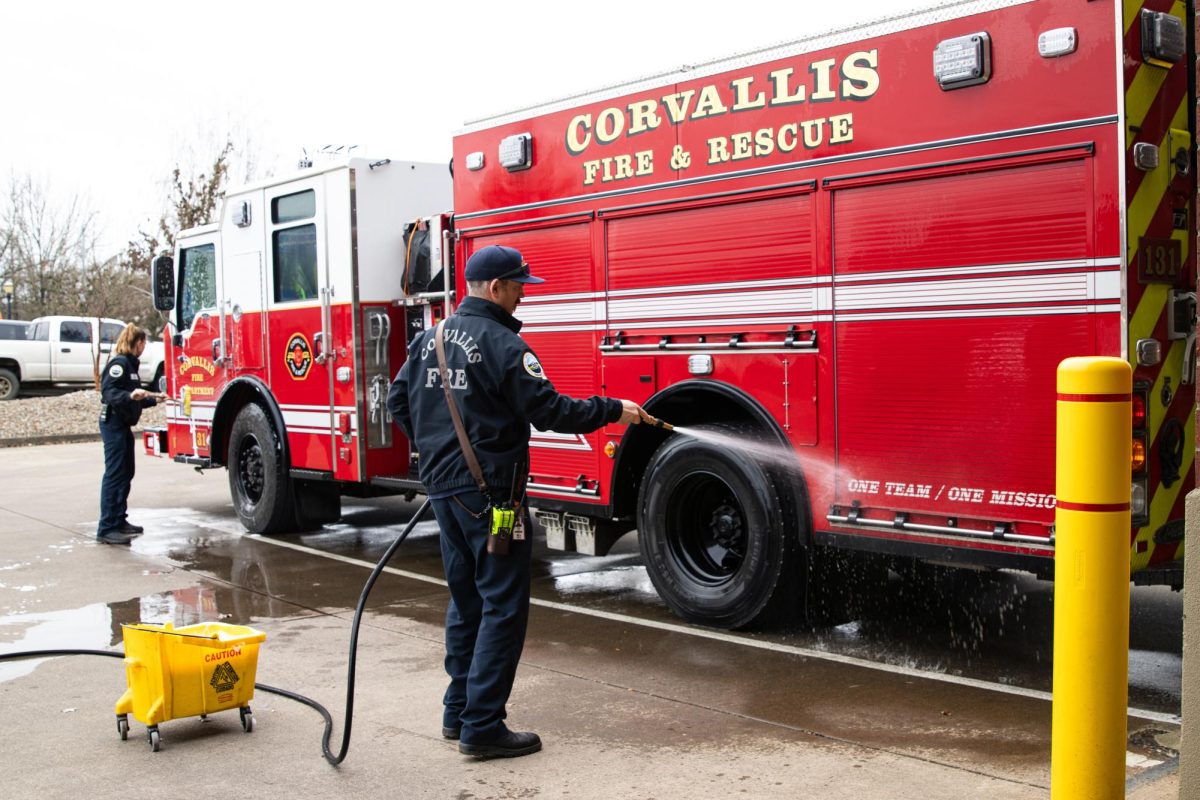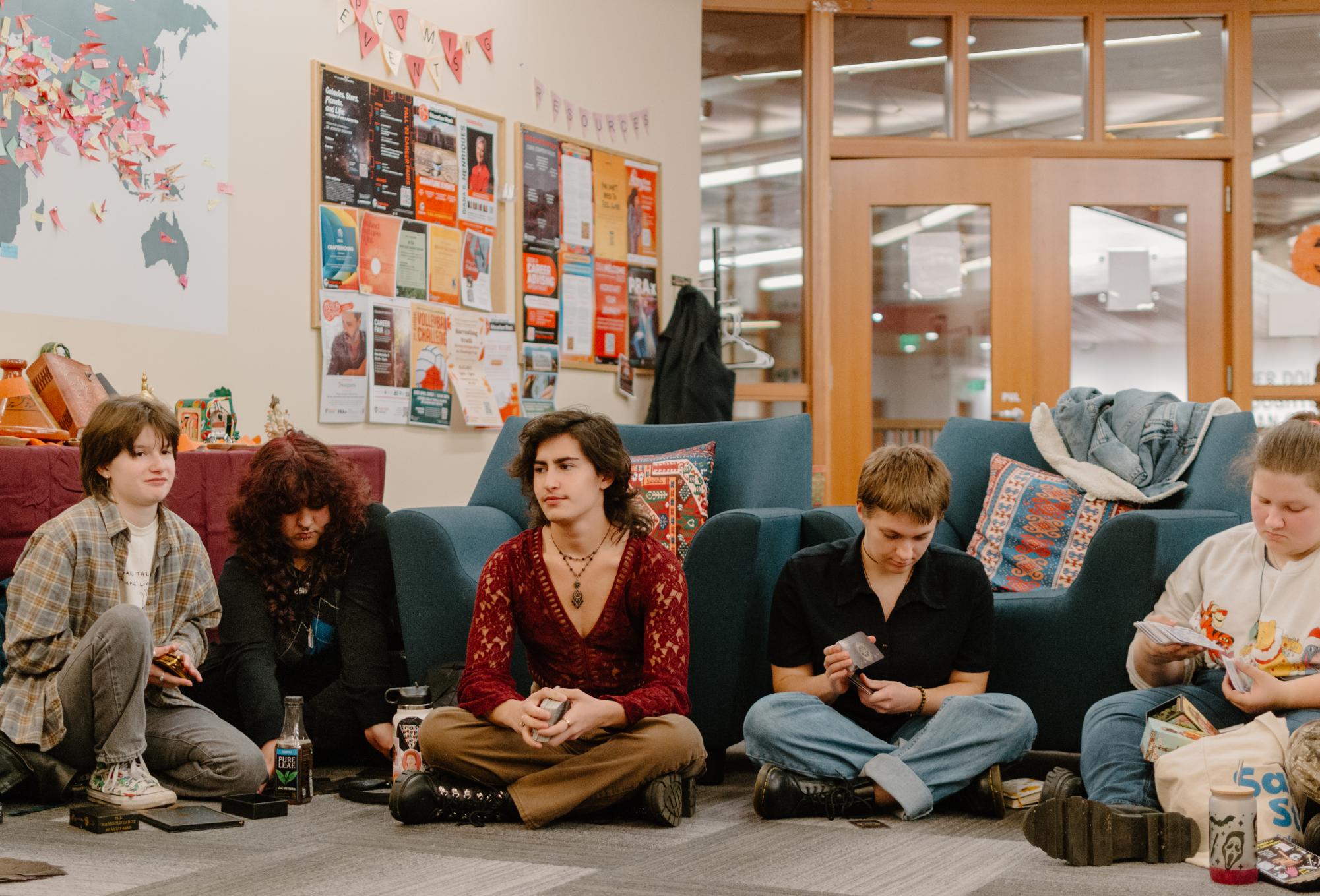Arranged in a circle and sitting on a variety of colorful pillows and plush armchairs, a group of Oregon State University students share stories, support and laughter at the weekly Pagan Student Association meeting.
“What makes our club so special is that we get to come together,” said Zane Yinger, a member of the club. “Most of us are used to being alone in our faith.”
Since its founding in 2018, the Pagan Student Association at OSU has worked to welcome members of all religious backgrounds to the exploration and practice of Paganism.
Described by Yinger as an earth-based religion that is strongly connected with nature and it’s processes, Paganism is a mystic faith which finds symbolism in ecology and believes that all things, nature included, possess souls and personhood.
“What I love about paganism, what makes everyone really attracted to it, is that it’s highly customizable,” Yinger said.
According to Yinger, unlike most organized religions, Pagan practices are often individualized and do not focus on a specific dogma or type of worship.
“There aren’t really any set of doctrines that we subscribe to,” Yinger said. “We really invite people to get creative with what spirituality means and what it can be.”
Yinger is one of four council members that make up the club’s leadership. Each leader sits on one of the four seats – in an effort to be equal in distribution of leadership – representative of the four cardinal directions.
Sitting on the seat of the east, Yinger describes the club as a “spiritual playground.” Although each Pagan has their own unique thoughts and practices, club meetings are a place where members can get together to learn, play and share ideas before going back home to their individualized practices.
Through activities, crafts or discussions, club members learn about a specific topic or form of divination – the rituals that allow one to connect with a higher power – and in what ways those tools could be applied to their own forms of worship.
With the location varying weekly, the club meets every Tuesday at 6 p.m. to explore and discuss a different spiritual topic.
According to Yinger, one of the club’s most popular meetings is Tarot Night, where members pull tarot cards, a practice that entails interpreting the meanings of cards pulled from a deck that has been set with a distinct intention. Together, the group learns how to pull and read their cards and then discusses each member’s reading.
“I wanted to join (the Pagan Student Association) because I have been trying to learn how to interact with faith and spirituality outside of a centralized organization or institutional religion,” said club member Maddy Sims.
Sims was raised Christian, but began to explore Paganism after they began to feel a strain in their relationship with traditional religion.
In their eyes, the best part of the club is the ability to explore spirituality in a safe, non-judgmental space within a community of like-minded individuals.
Some members find solace in Paganism as a form of healing from past religious trauma, and others look to build upon their pre-existing religious beliefs through Pagan practices.
“We’ve got people from across the board,” said Sage Morrison, club leader and council member. “It’s really beautiful to see everyone’s different perspectives because of that.”
While the club has 150 enrolled members, weekly meetings see an average of 30 attendees according to Yinger.
Hoping to reach a demographic of students that might have a false idea of the club’s purpose and practices, Yinger’s goal is to squander the misconceptions that they feel deter so many students from exploring Paganism.
“Paganism and witchcraft have obviously been demonized in the past,” Yinger said. “We call it the broom closet; you don’t want to come out about being a Pagan or a witch because everyone’s gonna give you the stinky eye and call you a devil worshiper.”
Yinger hopes that the unique backgrounds of its members and the welcoming nature of the group will help to usher in more students looking to learn more about Pagan beliefs.
“We’re not threatening. We’re actually very cool,” Yinger said.


















































































![Newspaper clipping from February 25, 1970 in the Daily Barometer showing an article written by Bob Allen, past Barometer Editor. This article was written to spotlight both the student body’s lack of participation with student government at the time in conjunction with their class representatives response. [It’s important to note ASOSU was not structured identically to today’s standards, likely having a president on behalf of each class work together as one entity as opposed to one president representing all classes.]](https://dailybaro.orangemedianetwork.com/wp-content/uploads/2025/03/Screenshot-2025-03-12-1.00.42-PM-e1741811160853.png)
























